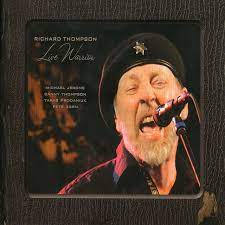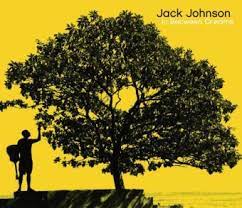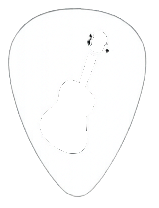Popular Folk Music Songs
On The Acoustic
Welcome to my collection of lessons on playing popular folk music songs on the acoustic guitar! Whether you're a beginner or an experienced guitarist, my video tutorials offer comprehensive guidance on mastering folk classics from artists like Jonathan Edwards, Tom Paxton, Harry Chapin, John Sebastian, Mary MacGregor, Brewer & Shipley, and more.
Each lesson below provides free rhythm tips, a chord sheet, and a video demo for you to get started. Dive into the rich tradition of folk music and learn to play these beloved songs with ease.
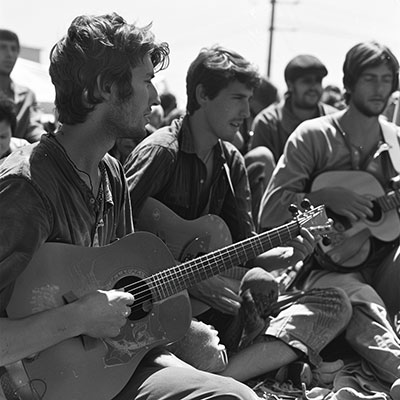
Brewer & Shipley - One Toke Over The Line
Evangeline - Gulf Coast Highway
Harry Belafonte - Kingston Town
Harry Chapin - Cats In The Cradle, Taxi, W.O.L.D
Jason Mraz - Everywhere, Long Drive, Love Is Still The Answer, Lucky, Quiet, Three Things
John Sebastian - Welcome Back
Jonathan Edwards - Sunshine
Loudain Wainwright III - Dead Skunk
Lyle Lovett - Bears, If I Had A Boat, In My Own Mind, Private Conversation, The Waltzing Fool
Mary McGregor - Torn Between Two Lovers
R Dean Taylor - Indiana Wants Me
Roger Whittaker - Durham Town, New World In The Morning (free lesson)
Ron Hynes - Sonny's Dream
Seals & Crofts - Diamond Girl, Get Closer, Summer Breeze, The King Of Nothing
The Kingston Trio - Chilly Winds, Desert Pete, Scotch & Soda, Three Jolly Coachmen, Where Have All The Flowers Gone
Tom Paxton - I Can't Help But Wonder Where I'm Bound, I'm The Man Who Built The Bridges, The Last Thing On My Mind
Woody Guthrie - Baltimore To Washington, Blowing Down The Road, This Land Is Your Land
Popular Folk Music Songs
Chords, Lyrics, Demos, Tutorials
Brewer And Shipley Songs
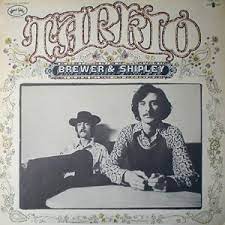
One Toke Over The Line was the debut single for the duo Brewer and Shipley back in 1971. Both artists recall being out of it and Tom Shipley kept saying he was one toke over the line. That was the inspiration for the tune.
The duo only had this song that reached the top 40 and peaked at #10 in the US, #5 in Canada and #7 in New Zealand. The song is on their album "Tarkio".
Use a root down root up down up and repeat rhythm pattern in standard tuning and a capo 2nd fret. The chords are D, G, A/Db, Bm, Bm/B, A7, D7, E7 and you'll need to perform some lead playing here.
Jump To Top
Evangeline Songs
Gulf Coast Highway ... info soon.
Jump To Top
Harry Belafonte Songs
Kingston Town ... info soon.
Jump To Top
Harry Chapin Songs

Cats In The Cradle by Harry Chapin was a big hit, reaching No. 1 on the Billboard Hot 100 chart in December 1974 and No. 3 on the Billboard Adult Contemporary chart.
The song, originally a poem by Chapin's wife Sandy, tells the story of a father who is too busy for his son, only to have the roles reversed when the son grows up.
Over the years, many artists have covered "Cats in the Cradle," including Ugly Kid Joe, whose 1992 version introduced the song to a new generation. The song's theme of a changing father-son relationship continues to resonate with listeners.
Its emotional story about the importance of family has made it one of Harry Chapin's most memorable and touching songs.
This one I play in standard tuning with a capo on the 8th fret. The rhythm is down down up down up down up and repeat pattern and a few riffs blended into the rhythm. The chord you'll need are A, G, C, D, D/Gb, Em and a G6.
Jump To Top
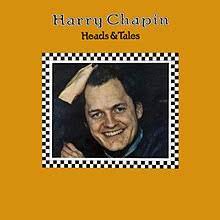
Taxi an important song by Harry Chapin from his 1972 album "Heads & Tales." Like his well-known "Cats in the Cradle," "Taxi" resonated deeply with listeners, establishing Chapin as a talented folk singer and songwriter.
Although "Taxi" didn't top the music charts like "Cats in the Cradle," it still made an impact, reaching No. 24 on the Billboard Hot 100 chart. Chapin's skill in creating emotional and storytelling music shines through in this song.
The rhythm here is a 1-2-3 up down up down up and repeat (where 1-2-3 are arpeggio notes in the chord), and a chop ddudduddu later on. Played in standard tuning and no lead work, use the chords D7, Am/D, C, A#, G, D, Em, Bm, A7, Dsus2/F, Dm (add9)/B♭, F, Cmaj7, Gm.
Jump To Top

"W.O.L.D" is a notable song by Harry Chapin, found on his 1973 album "Short Stories." It showcases Chapin's talent for storytelling, portraying the life of an aging disc jockey in a way that connects with listeners.
Although "W.O.L.D" didn't reach the same heights as "Cats in the Cradle," it still left its mark, reaching No. 36 on the Billboard Hot 100 chart. The song's engaging narrative reflects Chapin's ability to create relatable stories.
The chords you'll need here are Em, Em/Eb, Em/D, Em/Db, Cmaj7, B, Am7, G, C, D, Am, F, B7 but no lead picking. I play in standard tuning with a 1-2 down up and repeat - down up stop up down up stop up is a 2nd pattern and down down down up down up is a 3rd rhythm pattern needed.
Jump To Top
Jason Mraz Songs

Everywhere is not featured on any of his studio albums. It is, however, included as a bonus track on the international edition of his 2008 live album "Jason Mraz's Beautiful Mess - Live on Earth."
This track is a love song that expresses the joy and wonder of being in a loving relationship. The lyrics are characterized by their playful and whimsical nature, with Mraz using imaginative metaphors to convey his feelings. The song features upbeat acoustic guitar and percussion, and Mraz's signature smooth and soulful vocal style.
The song was not released as a single, so it did not chart on any official music charts. It remains a fan favorite and a popular song in Jason Mraz's live performances.
Jump To Top

Long Drive is a a track released in 2014 as part of his album "YES!". The song is a slow, romantic ballad that showcases Mraz's signature soft and mellow vocal style. The lyrics of the song talk about the idea of taking a long drive with a loved one, letting go of all worries, and just enjoying the moment.
The instrumentation of "Long Drive" is primarily driven by acoustic guitar, with gentle percussion and subtle strings adding depth and texture to the song. The song's arrangement creates a sense of intimacy and warmth, making it a popular choice for weddings and other romantic occasions.
"Long Drive" received positive reviews from critics, who praised Mraz's songwriting and emotive delivery. The song has also been featured in several popular TV shows and films, including the hit TV series "Grey's Anatomy." There was an official music video release for this song.
Jump To Top
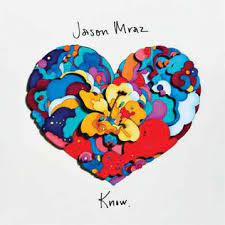
Love is Still the Answer from Jason Mraz was released in 2018 as a part of his album "Know." The song is an upbeat, feel-good tune that encourages people to prioritize love and kindness in their lives.
With its catchy melody, energetic instrumentation, and positive lyrics, "Love is Still the Answer" is an uplifting song that aims to spread a message of hope and unity.
The song's lyrics encourage people to let go of their differences and come together in love, highlighting the importance of compassion and empathy in a world that can often feel divisive and overwhelming.
Chords & Lyrics
Jump To Top
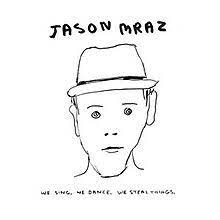
Lucky is a single by Jason Mraz featuring Colbie Caillat, released in 2009 from Mraz's album "We Sing. We Dance. We Steal Things." The song is a duet that celebrates the happiness of being in a healthy and loving relationship with a breezy and upbeat melody.
Critics praised "Lucky" for its infectious melody and charming lyrics. The song was commercially successful, reaching the top 10 in several countries, including the United States and Australia.
The music video for "Lucky" depicts Mraz and Caillat performing the song in a beach setting, interspersed with scenes of a happy couple spending time together. The romantic and dreamy visuals add to the song's overall appeal.
Jump To Top

Quiet is a heartfelt track from Jason Mraz's 2014 album "Yes." The song showcases Mraz's signature acoustic guitar and emotive vocals, as he sings about the importance of finding inner peace in a noisy and chaotic world.
Mraz's poetic lyrics and delicate delivery create a sense of vulnerability and introspection, making "Quiet" a standout track on the album. The song has received critical acclaim for its introspective songwriting and soulful performance, and has also been featured in several TV shows and commercials.
Although no official music video was produced for "Quiet," fans can enjoy several live performance videos of the song on YouTube.
Jump To Top

Three Things is a beautiful and introspective song by Jason Mraz, featured on his album "Yes". The song's arrangement centers around a simple acoustic guitar riff and Mraz's soulful vocals, with subtle harmonies and percussion adding depth to the track.
The lyrics of "Three Things" focus on the idea of finding simplicity and contentment in life by focusing on what truly matters. Mraz sings about the three things he needs in life: "Love, the sky, and a little bit of peace of mind."
The song's message is one of mindfulness and gratitude, encouraging listeners to appreciate the beauty and simplicity of life.
Jump To Top
John Sebastian Songs
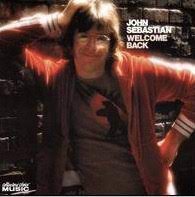
Welcome Back was released in 1976 by the front man for The Lovin Spoonful, John Sebastian who wrote and recorded this song. It appeared as the theme song for the TV show Welcome Back Kotter.
The song peaked at #1 in the US and is from the album of the same name.
Using the chords G, A, D, Em, A7sus, A7, Gbm, B7, Esus, E you'll also need some lead in this one. I play in standard tuning with a down down up down up down up rhythm pattern with a few shuffle strums.
Jump To Top
Jonathan Edwards Songs
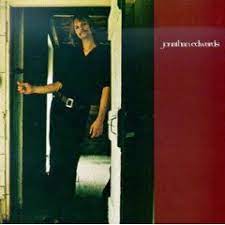
Sunshine was Jonathan Edwards' highest charting song reaching #4 in the US, #7 in Canada and #45 in Australia. The engineer accidentally erased a a song for the album called Please Find Me.
So Sunshine was used to finish the album and was selected as the single. It's from his debut album "Jonathan Edwards" from 1971.
With the chords G, D, F and a D7, play in standard tuning with a down up stop up and repeat rhythm pattern and be ready for a bit of picking in this one.
Jump To Top
Loudain Wainwright III Songs
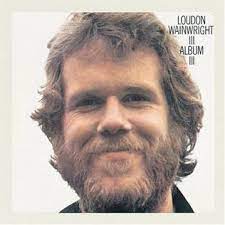
Dead Skunk is a humorous song by Loudon Wainwright III, released in 1972 on his album "Album III." It describes a skunk that has been run over and the lingering smell it leaves behind.
The song became Wainwright's biggest hit, reaching No. 16 on the Billboard Hot 100 chart in 1973. Its playful lyrics and catchy folk-rock melody contributed to its popularity as a novelty song.
Despite its silly subject matter, "Dead Skunk" became a significant part of Wainwright's musical identity and remains one of his most well-known songs.
This one is played with the chords G, C and D and I play with a capo on the 2nd fret. You'll play a simple root down up root up down up rhythm pattern and some picking in between the verses in standard tuning.
Jump To Top
Lyle Lovett Songs
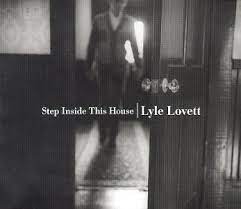
Bears is a song by the American singer-songwriter Lyle Lovett, released on his 1998 album titled "Step Inside This House." The song is a humorous and whimsical take on the behavior of bears, as observed by the narrator during a camping trip.
The song features Lovett's distinctive blend of country, folk, and blues, with clever lyrics that are both observational and poetic. The verses describe the different behaviors of bears in various situations, such as foraging for food or defending their territory, while the chorus emphasizes the fact that "bears are gonna getcha if ya don't watch out."
"Bears"
has become a fan favorite and a staple of Lovett's live shows.
Jump To Top
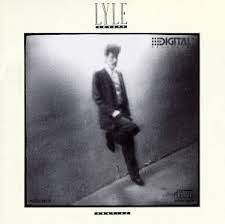
If I Had a Boat is another popular song by Lyle Lovett, released on his 1987 album "Pontiac." The song is a whimsical and imaginative reflection on life and love, featuring Lovett's signature blend of country, folk, and jazz influences.
The number peaked at #66 on the US country charts.
The song has become one of Lovett's most beloved and well-known tracks, and has been covered by numerous other artists over the years. Critics have praised the song's clever lyrics and Lovett's unique vocal delivery, which is both dryly humorous and heartfelt.
If I Had a Boat is a classic Lyle Lovett song that showcases his ability to craft compelling stories and his unique musical style.
Jump To Top
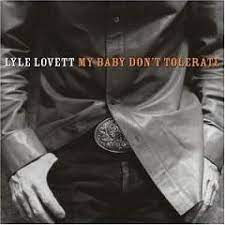
In My Own Mind was written by Lyle Lovett and it appears on his 2003 album "My Baby Don't Tolerate."
The song is a slow, introspective ballad that showcases Lovett's songwriting skills and his ability to convey complex emotions through his music. The lyrics of "In My Own Mind" are deeply personal and reflective, exploring the narrator's feelings of loneliness and isolation despite being surrounded by people who care for him.
The track is a poignant and powerful song that demonstrates Lyle Lovett's songwriting skills and his ability to connect with his audience on a deeply emotional level.
Jump To Top
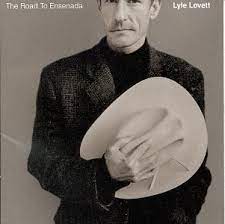
Private Conversation was released on the 1996 album "The Road to Ensenada." The song is a mid-tempo ballad that features Lovett's trademark blend of country, folk, and blues.
Musically, "Private Conversation" features Lovett's smooth, mellow vocals, backed by a gentle acoustic guitar and a simple, understated arrangement. Critics have praised the song's intimate and reflective tone, as well as Lovett's ability to convey complex emotions through his music.
The song peaked at #72 and #12 on two different US charts.
I play a capo 4th on this one in standard tuning and no lead. Play a steady down up down up rhythm pattern with the three chords D, A and E.
Jump To Top
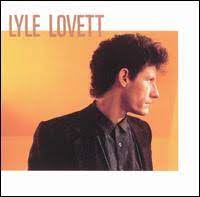
The Waltzing Fool hails from Lyle Lovett's self-titled debut album released in 1986.
"The Waltzing Fool" is a playful, up-tempo country swing tune that showcases Lovett's clever lyrics and his talent for blending different musical styles. The song tells the story of a hapless protagonist who is unlucky in love and often finds himself dancing alone. The song's infectious melody and upbeat tempo make it a popular choice for dancing and have helped to establish it as a fan favorite.
Musically,
"The Waltzing Fool" features Lovett's distinctive vocals and a lively
instrumental arrangement that includes fiddle, steel guitar, and piano.
Jump To Top
Mary McGregor Songs

Torn Between Two Lovers is Mary MacGregor's first album. It was made and partly written by Peter Yarrow and came out in 1976. The album reached number 17 on the Billboard 200 chart.
Three singles were released to promote the album, and all of them made it to both the Country singles and Hot 100 pop charts. The title song was a number-one hit on both the pop and adult contemporary charts.
This one uses a down down up down up down up and repeat rhythm pattern with a capo on the 3rd fret. I'm playing a G, Am, D, Em, Am7, C, Bm, D and an E chord with no lead work.
Jump To Top
R Dean Taylor Songs
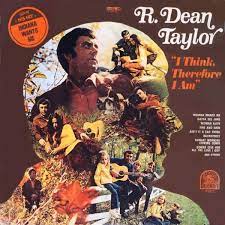
Indiana Wants Me was written by Canadian artist R. Dean Taylor and was a top 10 in both Canada and the US in 1970.
This one can be found on his album "I Think Therefore I Am".
Played with a capo 1st fret in standard tuning, this song has no lead work in it and is played with the chords G, C, D, G6, Em, E7, A7, F, Am and D7. You'll need a down down up down up down up and repeat rhythm pattern.
Jump To Top
Roger Whittaker Songs
Durham Town ... info soon.
Jump To Top

New World In The Morning is a song released by Roger Whittaker back in 1971 although I thought for some reason it was a 1974 release. The album is the same title as the song and Whittaker scored a #17 hit in the UK and a #12 in the US with the song.
It's played with the chords C, G6, Am, Am/G, F, G and an E7 with a root down up down up down up and repeat rhythm pattern. Only one small riff in the song and played in standard tuning.
Jump To Top
Ron Hynes Songs
Sonny's Dream ... info soon.
Jump To Top
Seals And Crofts Songs
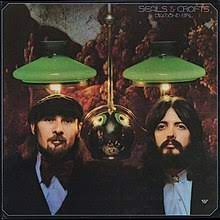
Diamond Girl is a track from the 1973 album of the same name and is considered one of Seals and Crofts greatest hits.
The song reached #6 on one US chart and #4 on another. The song also charted in Australia at #57.
I play this one with a capo on the 3rd fret in standard tuning using the chords G, G7, Am, D7 and G#. For a rhythm pattern I play a down down up down up and repeat.
The rhythm here is a combo of playing a steady down up down up with some quick shuffle strumming and some walking bass. For chords you'll need D, Am7, Em, Am, G, C/G, Dm, C, A#, A7, Esus and an E7. A little picking required here.
Jump To Top
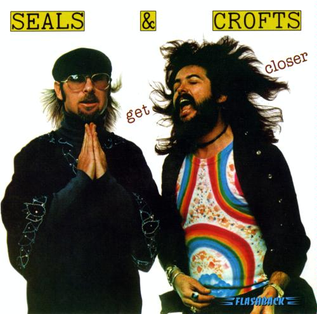
Get Closer is the title track from the 1976 album of the same name. The song was a top 10 on several charts and was the duo's last top 10 hit song of their career.
This another song with a steady shuffle pattern consisting of a down down up down up down up and repeat and some chops in various places. No lead here in standard tuning with the chords G, Em, F, C, C/G, Esus, E, A, D, D/Gb and a Gbm.
Jump To Top
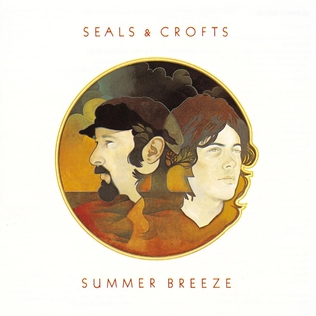
Summer Breeze was a track from the 1972 album of the same name. The sobg did well reaching #4 on the Easy Listening charts and #6 on the Hot 100 chart. It's hard not to feel in a summer vibe when this one is played.
For rhythm here you'll play a down down up down up down up and repeat for the most part with no lead in standard tuning. For chords use Em, Am7, Asus2, G, D, A, E, Bm and a Esus4/Gb.
Jump To Top
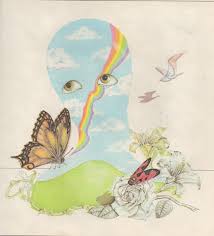
The King Of Nothing is a track from the 1974 album from Seals
and Crofts called Unborn Child. The song was released as a single and
reached #60 on the US charts.
This one is in standard tuning and has some lead work in my version here. I play a root up down up and repeat rhythm pattern with the chords A6, Amaj7, Cmaj7, Fmaj7, Eb and an E.
Jump To Top
The Kingston Trio Songs
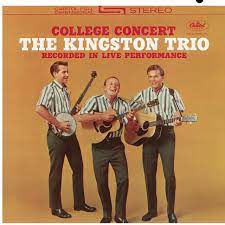
Chilly Winds is a
traditional folk song that was popularized by The Kingston Trio in the
late 1950s. The song tells the story of a sailor who is forced to leave
his true love behind and face the cold and lonely sea.
The Kingston Trio recorded "Chilly Winds" in
1958 for their self-titled debut album, which became a commercial
success and helped to popularize the folk music revival of the late
1950s and early 1960s.
"Chilly Winds" has since become a folk standard and has been covered by many other artists, including Peter, Paul and Mary, Judy Collins, and Bob Dylan.
I play a capo 4th fret in standard tuning here with no lead. G, Am, D7 and C are the chords with a root down up root up down up and repeat rhythm pattern.
Jump To Top
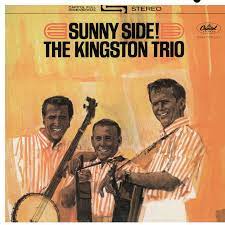
Desert Pete is a
folk song that was recorded by The Kingston Trio in 1961. The song tells
the story of a thirsty traveler in the desert who comes across a hand
pump with a note from
The Kingston Trio's recording of "Desert Pete" features their trademark three-part harmonies and acoustic instrumentation, including guitar, banjo, and bass. The song was a modest commercial success for the group, reaching #35 on the Billboard Hot 100 chart.
"Desert Pete" has since become a classic of the folk music genre and has been covered by many other artists, including Johnny Cash, Bob Dylan, and Judy Collins.
Played in standard tuning and no lead with the chords E, A, B7, AB and Db. Play a root down up down up down up and repeat rhythm pattern.
Jump To Top
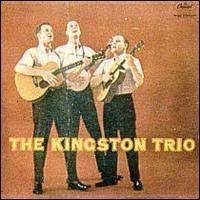
Scotch and Soda was written by Dave Guard, a founding member of The Kingston Trio. The song was first recorded by The Kingston Trio in 1958 for their self-titled debut album and became a popular track among their fans.
The
song is a romantic ballad that expresses the singer's love for a woman
and his desire to spend time with her over a glass of scotch and soda.
The Kingston Trio's recording of "Scotch and Soda" features their signature three-part harmonies and acoustic instrumentation, including guitar, banjo, and bass. The song has a gentle, lulling melody that complements the romantic lyrics.
The chords here are Cmaj7, Fm, F, Ddim7, A7sus, A7, D7, Amaug5, G7, A+, C, Gm7, G, D7, Cm, Emsus, C#dim7 and an Ebaug5. Some picking and played in standard tuning with a down down up down up down up and repeat rhythm pattern.
Jump To Top
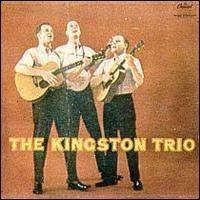
Three Jolly Coachmen is a song by The Kingston Trio, who were an American folk and pop music group that was popular in the late 1950s and early 1960s. "Three Jolly Coachmen" is one of their well-known songs, and it was included on their 1958 self-titled debut album.
The song tells the humorous story of three coachmen who race each other to win the heart of a young woman. The song's lively and catchy melody, combined with its playful lyrics, contributed to its popularity and enduring appeal among fans of folk music. The Kingston Trio played a significant role in popularizing folk music during their time and left a lasting impact on the genre.
Jump To Top
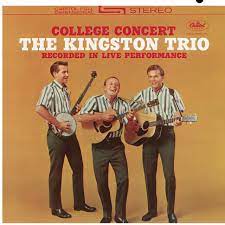
Where Have All the Flowers Gone is a song that was written by Pete Seeger in 1955. The song was popularized by The Kingston Trio, who recorded it in 1962 for their album "College Concert."
The song is a powerful anti-war anthem
that uses a series of rhetorical questions to highlight the cycle of war
and violence.
The
Kingston Trio's recording of "Where Have All the Flowers Gone" features
their trademark three-part harmonies and acoustic instrumentation,
including guitar, banjo, and bass.
"Where Have All the Flowers Gone" has since become a classic of the folk music genre and has been covered by many other artists, including Joan Baez, Marlene Dietrich, and Dolly Parton.
I play a capo 3rd fret here with my own picking break inserted in standard tuning. Play a root down up down up down up and repeat rhythm pattern.
Jump To Top
Tom Paxton Songs
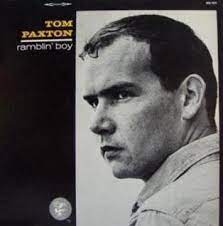
I Can't Help But Wonder Where I'm Bound is a folk song by Tom Paxton from his 1964 album "Ramblin' Boy." Although it didn't become a major chart hit, it became a favorite among folk music fans and is one of Paxton's signature songs.
The song's lyrics explore the restlessness of life on the road, resonating with many listeners. Paxton's thoughtful words and soothing voice have made it a favorite for fans and musicians.
Over the years, artists like Johnny Cash, Harry Belafonte, and Judy Collins have covered the song, highlighting its enduring appeal and universal themes. Many see "Ramblin' Boy" as Paxton's debut album because it was released by Elektra Records, a major label.
This one is played in standard tuning with a capo 2nd fret and contains a few riffs in the rhythm. I'm playing a root up down up root up down up and repeat rhythm pattern using the chords C, F, Dm, G, G7, C and G6.
Jump To Top
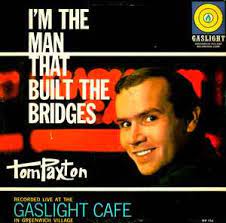
I'm The Man That Built The Bridges is a song by folk singer-songwriter Tom Paxton from his 1962 album of the same name. Though it didn't chart widely, it holds a special place in folk music.
The song reflects on the labor and unsung heroes who built the nation's infrastructure. Paxton's heartfelt lyrics and warm delivery make it a powerful tribute to the working class.
Over the years, it has been appreciated by fellow folk artists and musicians, remaining a significant piece in Paxton's extensive body of work.
I play this with a capo on the 4th fret in standard tuning with a root down up down up down up and repeat rhythm pattern. There is some picking in this one with the chords C, C7, F and G.
Jump To Top
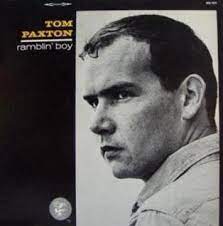
The Last Thing On My Mind is a classic folk song written by Tom Paxton, featured on his 1964 album "Ramblin' Boy." Though it didn't become a chart-topper, it holds a special place in the hearts of folk music fans.
Paxton's songwriting brilliance shines in "The Last Thing on My Mind," with its emotional lyrics and heartfelt vocals telling a tale of love and loss. Over the years, it's been covered by many artists, including Joan Baez, Neil Diamond, and Judy Collins, showing its universal appeal.
Dolly Parton and Porter Wagoner's 1967 duet brought the song to a wider audience, peaking at #7 in the US. Its enduring popularity speaks to its timeless themes and emotional resonance. For thythm I play a root down up down up down up and repeat pattern in standard tuning and a capo 2nd fret. There is some picking here playing the three chords G, C and D.
Jump To Top
Woody Guthrie Songs
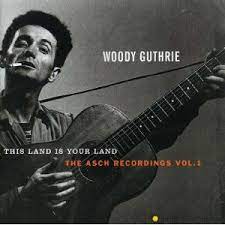
Baltimore To Washington was never released as a single.
It can be found on The Asch Recordings which covers a series of numbers recorded by Woody Guthrie between 1944 and 1949.
This one I play with a capo 4th fret in standard tuning. Some picking in this number as you play a root down up down up down up and rhythm pattern with the chords C, C7, F, G and a G7.
Jump To Top
Blowin Down The Road has no recorded ref as to which album may contain this track if any, so I have no idea about the history of this song.
The chords need here are G, G7, C, D and a D7 in standard tuning and some lead required. For rhythm play a root down up bass up down up and repeat pattern.
Chords & Lyrics
Jump To Top

This Land Is Your Land was written by Woody Guthrie in 1940 after getting tired of hearing Kate Smith sing God Bless America. The melody is from a Carter family number called "When The World's On Fire".
After he wrote the song, he forgot about it for 4 years until 1944 when he first recorded the song on The Asch Recordings Vol 1 album. Moses Asch was the person who recorded these songs by Woody over a 5 year period.
This one play in standard tuning with a root down up down up down up and repeat rhythm pattern with the chords G, C, D, D7 and C7. Some lead required in this song.
Jump To Top
Thank you for exploring my lessons on popular folk music songs for the acoustic guitar. I hope my resources have encouraged you to embrace the beauty and simplicity of folk music while honing your guitar skills.
Whether you're strumming along to Jonathan Edwards' "Sunshine," Tom Paxton's "The Last Thing on My Mind," or Harry Chapin's "Taxi," each song offers a unique journey into the heart of folk music. Keep practicing, keep playing, and let the timeless melodies of these popular folk music songs inspire your musical journey.
If you liked this mixed popular folk music songs page you might also like ... (click images)
Fun Folk Songs To Sing
